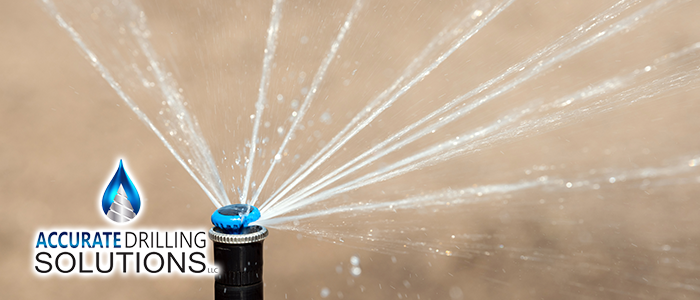
Spring Hill Property Managers’ Guide to Well Maintenance
For property managers overseeing residential or commercial properties in Spring Hill and Brooksville that rely on private well systems, ensuring a consistent and safe water supply is a paramount responsibility. Unlike properties on municipal water, well systems require specific upkeep. This Spring Hill Property Managers’ Guide to Well Maintenance provides essential information and best practices for managing well systems effectively, protecting tenants, and preserving property value.
Managing properties with wells involves unique challenges, from routine inspections and water quality testing to handling unexpected repairs and ensuring regulatory compliance. Proactive maintenance not only prevents costly emergencies but also demonstrates due diligence in providing safe living or working conditions. Ignoring well maintenance can lead to tenant complaints, potential health risks, and liability issues.
Understanding Well System Components on Managed Properties
Property managers should have a basic understanding of the well systems under their care. While specifics vary, most systems include a well (the source), a pump (usually submersible), a pressure tank (to maintain pressure and reduce pump cycling), a pressure switch (to control the pump), and various plumbing connections. Larger properties or multi-unit complexes in areas like Spring Hill might have more complex systems, potentially involving larger pumps, multiple pressure tanks, booster pumps, or water treatment equipment.
Knowing the location of the wellhead, pump controls, pressure tank, and main shut-off valves is crucial for both routine checks and emergency situations. Maintaining a file for each property with well system documentation, including the original driller’s report (if available), pump specifications, maintenance records, and water test results, is highly recommended.
Creating a Routine Well Maintenance Schedule
Preventive maintenance is the cornerstone of effective well management. Property managers should establish a regular schedule for inspections and servicing. While specific frequencies depend on the system type and usage, a general guideline includes:
- Annual Professional Inspection: Hire a licensed well contractor (like Accurate Drilling Solutions) to perform a comprehensive annual check-up. This should include testing pump motor performance (amps, voltage), checking the pressure tank’s air charge, inspecting the pressure switch and control box, examining the well cap’s integrity, and visually inspecting accessible components for leaks or corrosion.
- Regular Water Quality Testing: Implement a schedule for testing the water supply. Annual testing for bacteria (coliform and E. coli) and nitrates is the minimum recommendation by health authorities like the Florida Department of Health. Depending on the property’s history and location, periodic testing for other contaminants (e.g., lead, arsenic, pesticides) may be warranted.
- Periodic Property Staff Checks (Monthly/Quarterly): If feasible, have property staff perform quick visual checks. Look for obvious leaks, listen for unusual pump noises (like short cycling or grinding), check gauges on pressure tanks, and ensure the area around the wellhead is clean and secure.
- Water Treatment System Servicing: If the property uses water softeners, filters, or disinfection systems (like UV or chlorination), follow the manufacturer’s recommendations for service, media replacement, or bulb changes.
Documenting all maintenance activities provides a valuable history and demonstrates proactive management.
Importance of Water Quality Testing for Tenant Safety
Ensuring safe drinking water is perhaps the most critical aspect of managing properties with wells. Unlike municipal suppliers, property owners/managers are responsible for water quality. Contaminated water can lead to serious health issues for tenants and significant liability for the property manager and owner. Regular testing is non-negotiable.
It’s essential to use a state-certified laboratory for water testing to ensure accurate results. If tests reveal contaminants exceeding safe limits, prompt action is required. This typically involves identifying the source of contamination (which may require well inspection or further testing) and installing appropriate water treatment systems. Informing tenants about water quality issues and the steps being taken to resolve them is crucial for transparency and maintaining trust. Keeping detailed records of all water tests and corrective actions is vital.
Managing Well System Repairs and Emergencies
Despite regular maintenance, well system components can fail. Pumps wear out, pressure tanks can lose their charge or rupture, and electrical components can malfunction. Property managers need a plan for handling these situations promptly, especially since water supply interruptions can severely impact tenants.
Establishing a relationship with a reliable, licensed well service company that offers emergency services in the Spring Hill and Brooksville area is key. Accurate Drilling Solutions provides responsive service for well and pump system repairs. When tenants report issues like no water, low pressure, or strange noises, prompt investigation is necessary. Clear communication with tenants about the problem and the expected timeline for repair is essential. Authorizing repairs quickly can minimize inconvenience and potential damage.
Budgeting for Well System Maintenance and Replacement
Well systems involve ongoing costs beyond routine maintenance. Major components like pumps and pressure tanks have finite lifespans (typically 10-15 years, but variable). Property managers should factor these potential replacement costs into their long-term budgets and reserve funds. A pump failure can be a significant, unexpected expense if not planned for.
Obtaining estimates for component replacement costs from a local well contractor can help in budget planning. Proactive replacement of aging components, even before failure, can sometimes be more cost-effective than dealing with an emergency shutdown and repair. Maintenance agreements offered by companies like Accurate Drilling Solutions can sometimes help stabilize annual maintenance costs.
Educating Tenants About Well Systems
Tenants moving from properties with municipal water may not understand the nuances of living with a well system. Providing basic information can prevent misunderstandings and encourage cooperation in identifying potential issues. Consider providing tenants with a brief informational sheet covering:
What to do if they experience low pressure or no water (i.e., who to contact).
Noting any unusual tastes, odors, or appearances in the water.
Understanding that occasional sediment might appear, especially after heavy use or power outages (though persistent sediment needs investigation).
Conserving water, as excessive use can strain the system and potentially the aquifer.
Keeping potential contaminants (pesticides, automotive fluids, etc.) away from the wellhead area.
This proactive communication can make tenants partners in maintaining the system’s health.
Conclusion: Proactive Management for Reliable Water in Spring Hill
Effectively managing properties with well systems in Spring Hill and Brooksville requires a proactive approach centered on regular maintenance, vigilant water quality monitoring, and prompt attention to repairs. This Spring Hill Property Managers’ Guide to Well Maintenance highlights the key areas property managers must focus on to ensure tenant safety, comply with responsibilities, and protect the property owner’s investment. Partnering with experienced and licensed professionals is crucial for success.
For comprehensive well maintenance services, water testing coordination, emergency repairs, and expert advice tailored to the needs of property managers, trust Accurate Drilling Solutions. Visit Accurate Drilling Solutions to learn about our maintenance agreements and services designed to support property management professionals.
continue reading
Related Posts
St. Petersburg’s Guide to Sustainable Water Solutions In coastal communities
Brooksville Well Water Quality: What You Need to Know For
Haines City: New Year Well System Maintenance Guide The start






